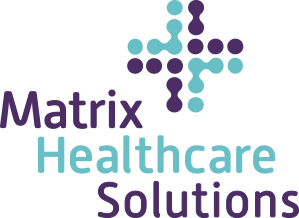Pharma Industry Records Record New Drug Approvals Despite Pandemic
In 2020, the COVID-19 pandemic had a significant impact on many areas of society. However, drug approvals in the pharma industry was not adversely impacted, and despite staffing issues the FDA was able to approve 121 novel drugs in 2020 compared with 119 in 2019. This was inclusive of an increase in approvals of new molecular entities (NMEs) which is the most innovative drug type and this number does not count emergency use authorizations for COVID-19 vaccines. Pharma Industry Newly Approves Gene and Cell Therapies The pharma industry has newly approved gene and cell therapies that expanded the use of technology to
New Pharmaceutical Product Launches Reach Record Levels in 2020
The COVID-19 pandemic’s impacts were numerous and far-reaching, creating disruptions across the world. However, new pharmaceutical product launches continued, leading to the development of vaccines and many other products. How have Clinical Trials Been Impacted by the Pandemic? Clinical trials have faced a lot of disruption since the beginning of the pandemic, however, activity levels have remained extremely high. The commencement of clinical trials increased by 8% with the advent of remote, virtual or decentralized trials helping to maintain the numbers. Clinical trials in some areas did decrease, however this is likely to have been due to a rearrangement of priorities in
Matrix Healthcare Solutions Adds MIA (IMP) to Portfolio of Licenses
Matrix Healthcare Solutions (MHS) has further complimented its expansive licensed capabilities with the addition of a Manufacturers Import Authorisation (MIA) for Investigational Medicinal Products (IMP). The stringent controls and high standards required for IMP management in clinical trials have a direct impact on product registration with regulatory and competent authorities around the world. The MIA (IMP) allows Matrix Healthcare Solutions to better serve its increasing global base of customers.
Matrix Healthcare Solutions Granted Direct Access to Pfizer Medicines
Matrix Healthcare Solutions is delighted to announce we have been granted direct access to medicines from Pfizer limited, for the purposes of supplying third party clinical trials, this covers access to the full UK / EU licenced portfolio of 453 lines. The Pfizer portfolio includes a number of oncology, antibacterial, and biologic medicines.
Biosimilar Clinical Trials Today & Tomorrow
Biological products, also known as biologics, have formed a cornerstone of modern healthcare for decades. Blood transfusions, gene therapy, monoclonal antibody treatment, vaccinations, and many more key clinical processes rely on goods derived from living organisms rather than chemical synthesis. Unfortunately, the development and manufacture of biologics can be extremely expensive. A common topic of debate by key opinion leaders in recent years has been the emergence of biosimilars and how to accelerate clinical trials in biosimilar development programs. What are Biosimilars? Biosimilars aim to reduce the costs associated with biologically-derived treatments without inhibiting the clinical significance of the innovator product. The goal is to identify
National Accelerated Licensing Routes to Improve Clinical Trial Supply
The Medicines and Healthcare Products Regulatory Agency (MHRA) has released its 2020-21 business plan, outlining its primary goals for the coming year. Driven by the need to develop new regulatory models and improving patient access to cutting-edge drugs and medical devices, the plan concerns various aspects of the British life sciences industry, including the efficacy and efficiency of clinical trial supplies. In the executive summary, the plan sets out the primary aim of “driving forward a substantial strategic and cultural change through 2020-21”. Though the document discusses a range of granular challenges in healthcare and medicine, two of the biggest issues covered are the
Matrix Healthcare Solutions Expands with a Manufacturer’s “Specials” License
Matrix Healthcare Solutions further expands licensed capabilities with the addition of Manufacturer’s “Specials” (MS) license.
Clinical Trial News: Drug Combo Tested in Severe COVID-19
Various news outlets around the world have reported on apparent clinical trials testing the efficacy of anti-HIV (human immunodeficiency viruses) medication in combatting COVID-19.
Clinical Trial Supply: What are Adjuvants?
At Matrix Healthcare Solutions (MHS), we specialize in providing bespoke supply strategies and clinical trial services at every step in the clinical trial lifespan.
Matrix Healthcare Solutions appoints Zac Gilles as Director, Clinical Supplies
Zac has focused his career in the pharmaceutical industry, sourcing comparative medicines for use in a wide category of Clinical Trials.

